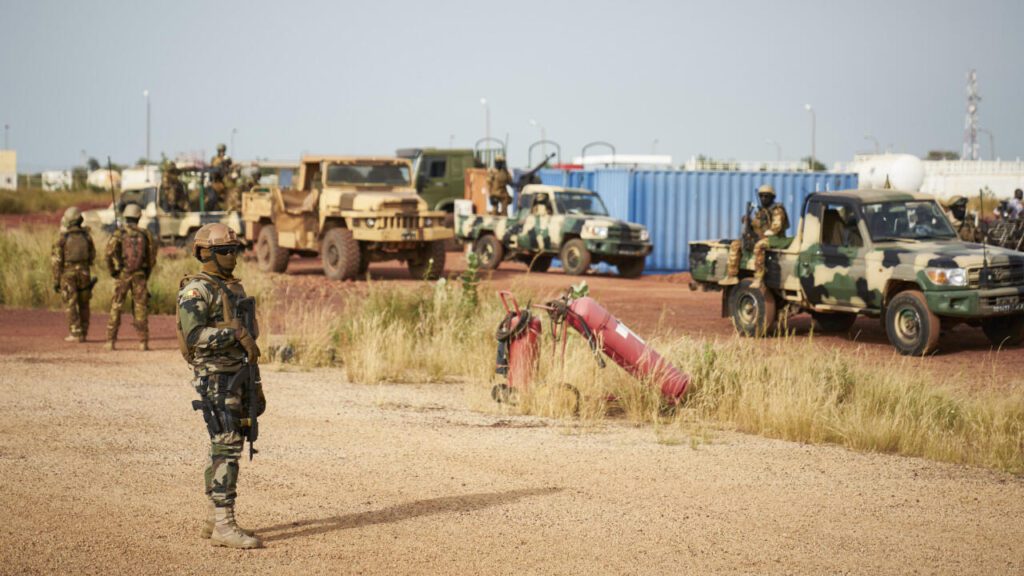- Web Desk
- Today
Al Qaeda and Afghan Taliban support TTP, says UN
-

- Web Desk
- Feb 01, 2024

ISLAMABAD: The prohibited Tehreek-i-Taliban Pakistan (TTP) is benefitting from substantial assistance from Al Qaeda and various militant groups in carrying out attacks in Pakistan, in addition to the backing received from the Afghan Taliban.
The United Nations Security Council Committee, through the 33rd report submitted by the ISIL (aka Daesh) and Al Qaeda/Taliban Monitoring Team, disclosed the collaboration involving not only the supply of weapons and equipment but also active on-the-ground assistance for the banned TTP’s operations against Pakistan.
‘Pakistan’s anti-corruption ranking improved seven points in 2023’
A report by Dawn News on Thursday said that repeated expressions of frustration by Islamabad over the Afghan Taliban’s failure to act against the outlawed TTP, responsible for numerous terrorist attacks in Pakistan, have strained relations between the two nations. Pakistan perceives Kabul’s reluctance to address the TTP as a direct threat to its national security.
The report highlighted that despite the Afghan Taliban’s official position discouraging TTP activities outside Afghanistan, TTP fighters have engaged in cross-border attacks in Pakistan without facing significant repercussions. Some Taliban members, motivated by a perceived religious duty, have reportedly joined TTP’s ranks, bolstering their operations.
The report also noted that TTP members and their families regularly receive aid packages from the Afghan Taliban, indicating a deeper level of support.
To alleviate pressure from Pakistan to address TTP activities, the Afghan Taliban temporarily detained between 70 and 200 TTP members and shifted personnel northward, away from the Afghanistan-Pakistan border regions.
In mid-2023, the banned TTP established a new base in Khyber Pakhtunkhwa, where a significant number of individuals were trained as suicide bombers. Al Qaeda core and Al Qaeda in the subcontinent played instrumental roles in providing training, ideological guidance, and support to the outlawed TTP, illustrating the interconnected nature of these militant networks.
Reports of Al Qaeda’s directives to allocate resources to the banned TTP indicate a deep-rooted collaboration aimed at destabilising the region.
Furthermore, the formation of Tehreek-i-Jihad Pakistan (TJP) as a front to provide plausible deniability to the outlawed TTP, along with the involvement of groups like East Turkestan Islamic Movement/Turkestan Islamic Party (ETIM/TIP) and Majeed Brigade in joint operations with TTP, highlight the multifaceted and transnational threat posed by these militant alliances.
The report highlighted that ETIM/TIP has shifted its base from Badakhshan Province to Baghlan Province, expanding its operational reach across various regions. The group is intensively engaged in training youth for its reserve forces and is notably enhancing the recruitment and training of women.
Growing concerns among regional countries arise due to ETIM/TIP’s active collaboration in recruitment, training, and strategic planning with extremist groups, particularly the banned TTP, posing a significant security threat to the area.
Reports from an unnamed member state indicate that Al Qaeda’s core faction significantly contributes to ETIM/TIP by offering both training and ideological mentorship.
India’s navy rescues two hijacked boats, frees its Pakistani crew
Meanwhile, the Majeed Brigade, involved in insurgency in Balochistan, reportedly has a strength of around 60 to 80 combatants, with a strategic focus on recruiting female suicide bombers. The Brigade collaborates with the outlawed TTP and ISIL-K in various domains, including training, arms procurement, intelligence exchange, and coordinated operations. Some member states are seeking more details regarding these collaborations.
The brigade has claimed responsibility for multiple attacks targeting law enforcement and Chinese personnel in Pakistan.




